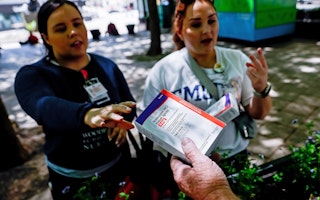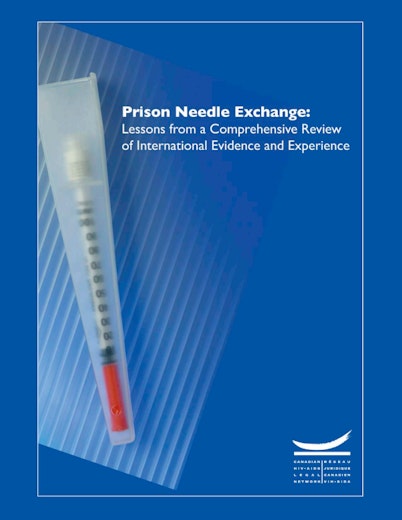As the number of prisoners living with HIV/AIDS and/or hepatitis C continues to rise, a new report concludes that prison needle exchange programs effectively reduce the individual and social damage associated with drug use.
Prison Needle Exchange: Lessons from a Comprehensive Review of International Evidence and Experience, by IHRD grantee Canadian HIV/AIDS Legal Network, is the first worldwide survey of its kind. It found that in six countries where prison needle exchange programs exist (Switzerland, Germany, Spain, Moldova, Kyrgyzstan, and Belarus) the following results occurred:
- Reduced incidence of risky behavior and of disease (including HIV and HCV) transmission;
- Increased staff and prisoner safety;
- A lack of increase in drug consumption or injection;
- Successful use of different methods of needle distribution to meet the needs of staff and prisoners in a wide range of prisons.
The report calls upon prison systems and health ministries in countries lacking prison needle exchange programs to start pilot studies of such programs, in order to protect prisoners, prison staff, and the public from the risk of blood-borne infections.
Read more
Harm Reduction for All
A Lifesaving Loan: A New Investment to Help Curb the U.S. Overdose Crisis

For over a decade, the small Remedy Alliance nonprofit has revolutionized providing lifesaving healthcare for people who use drugs. Our new investment will help the group increase access to the overdose antidote naloxone.
Drug Policy
Three Decades of Drug Policy Reform Work

Over the past 30 years, Open Society has been the largest philanthropic supporter of efforts to reform drug policy and promote harm reduction around the world. This is a timeline of the Foundations’ pathbreaking work.
WAR IS OVER?
How the United States Fueled a Global Drug War, and Why It Must End

As U.S. domestic drug policy reform gains momentum, it is time the United States makes a concerted effort to de-escalate the failed war on drugs elsewhere.
